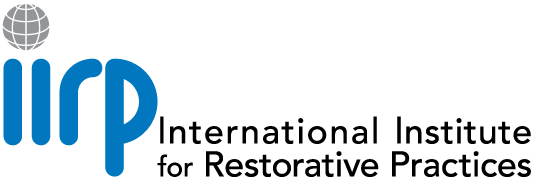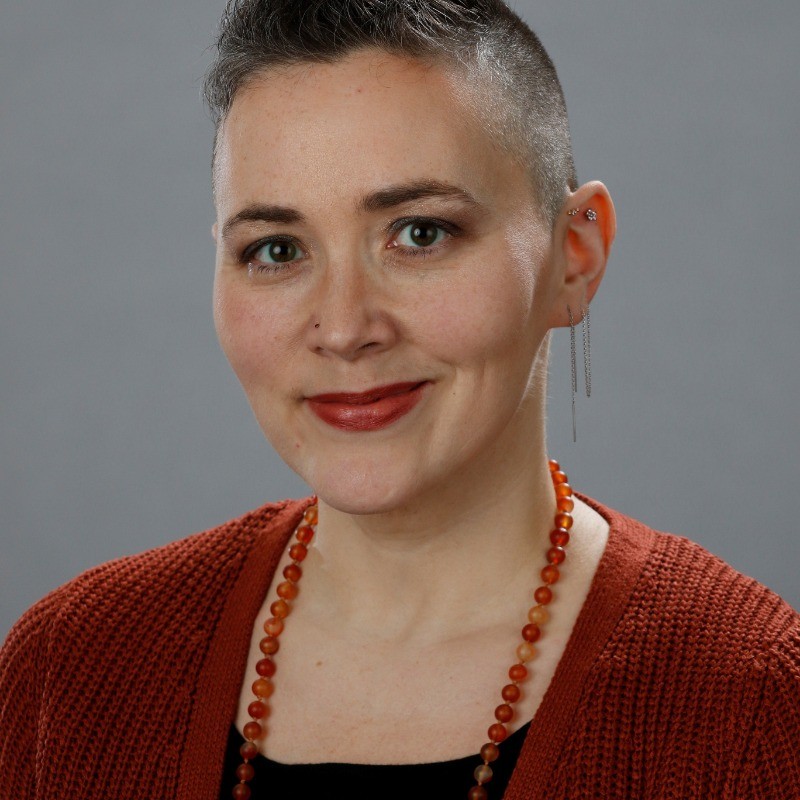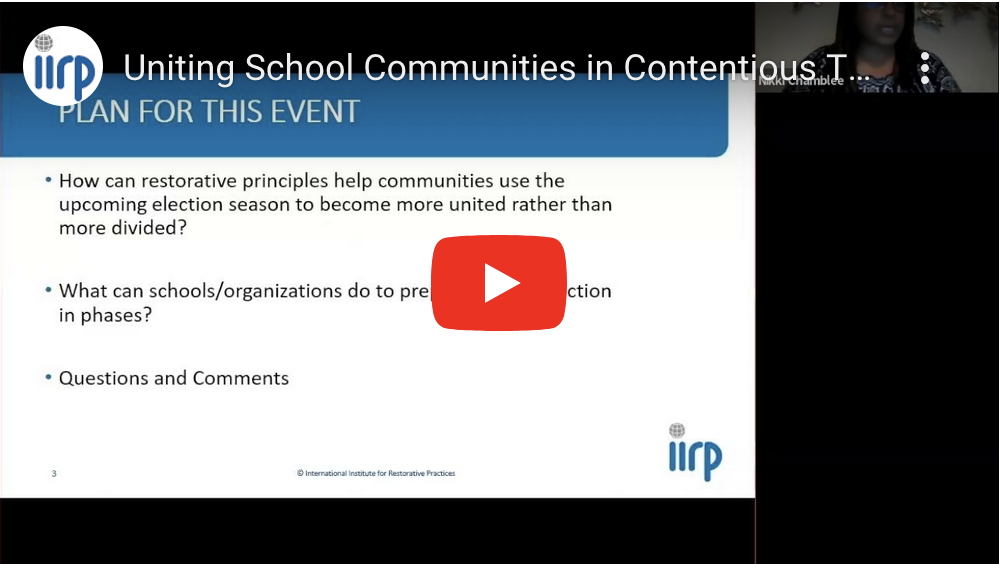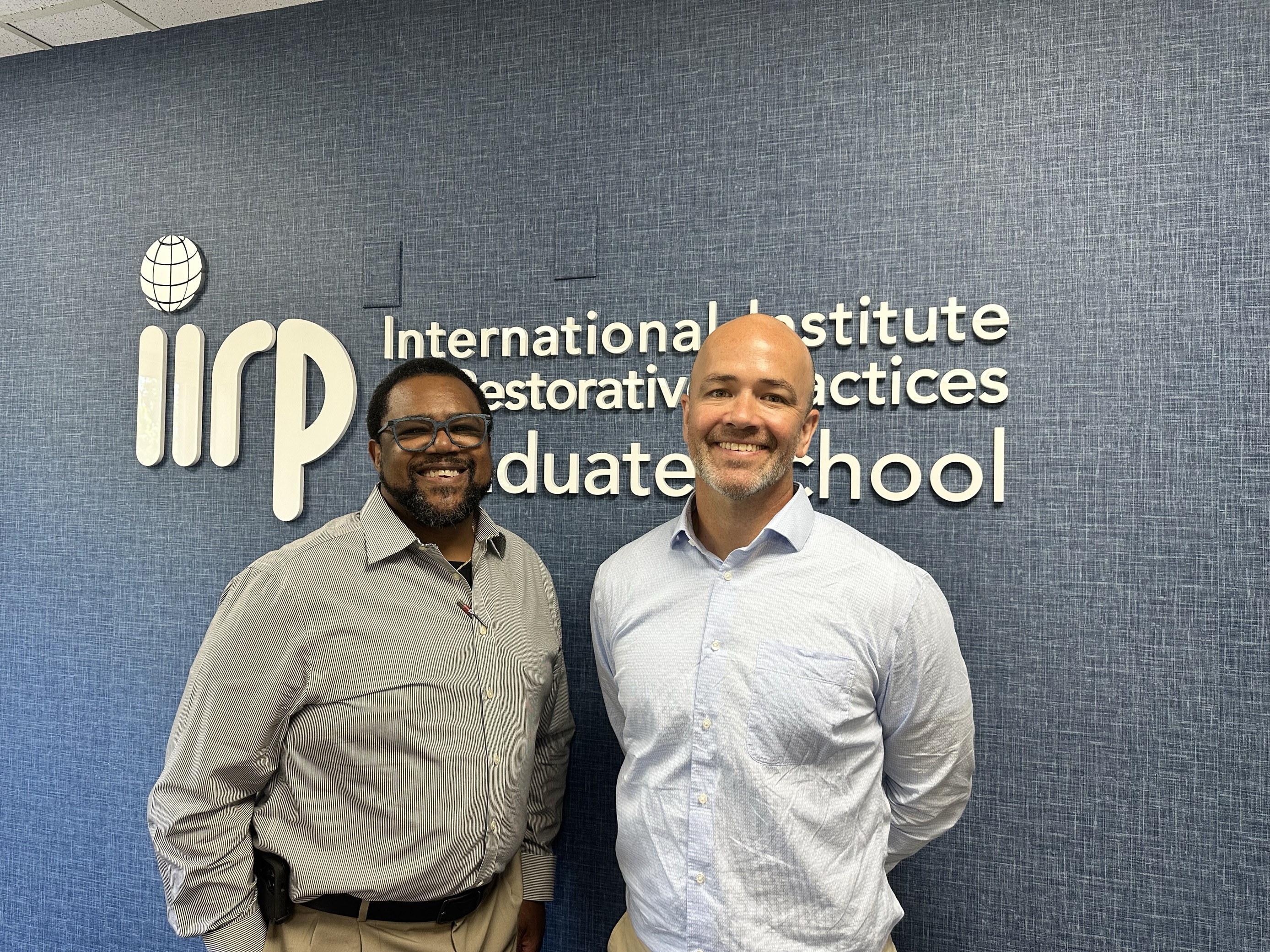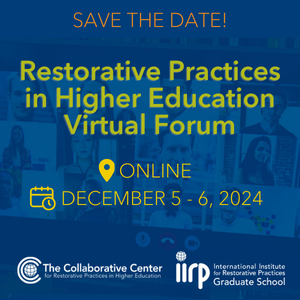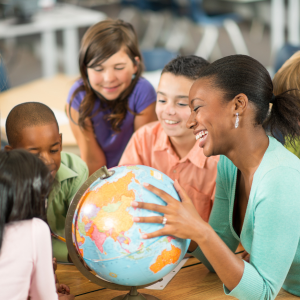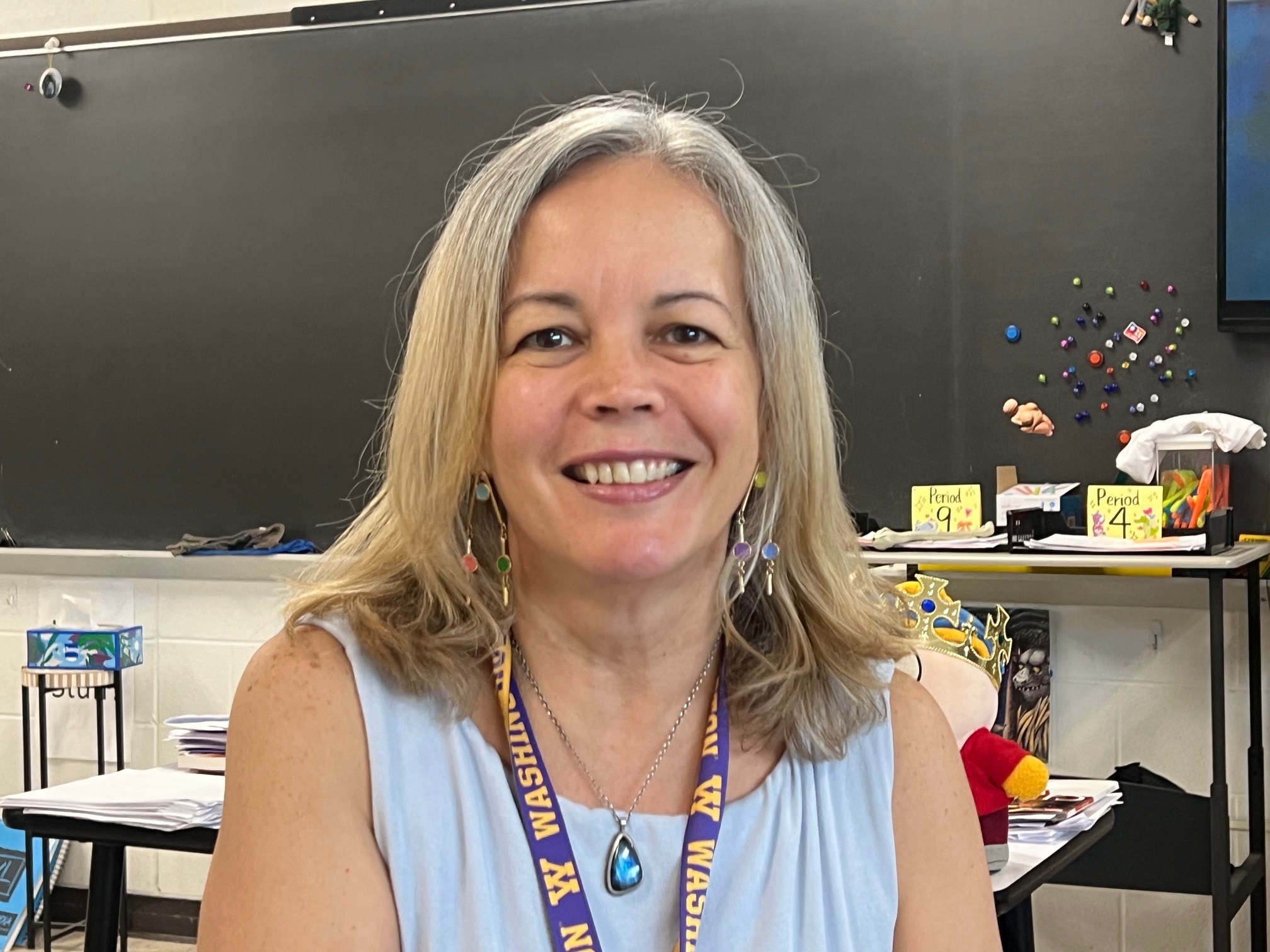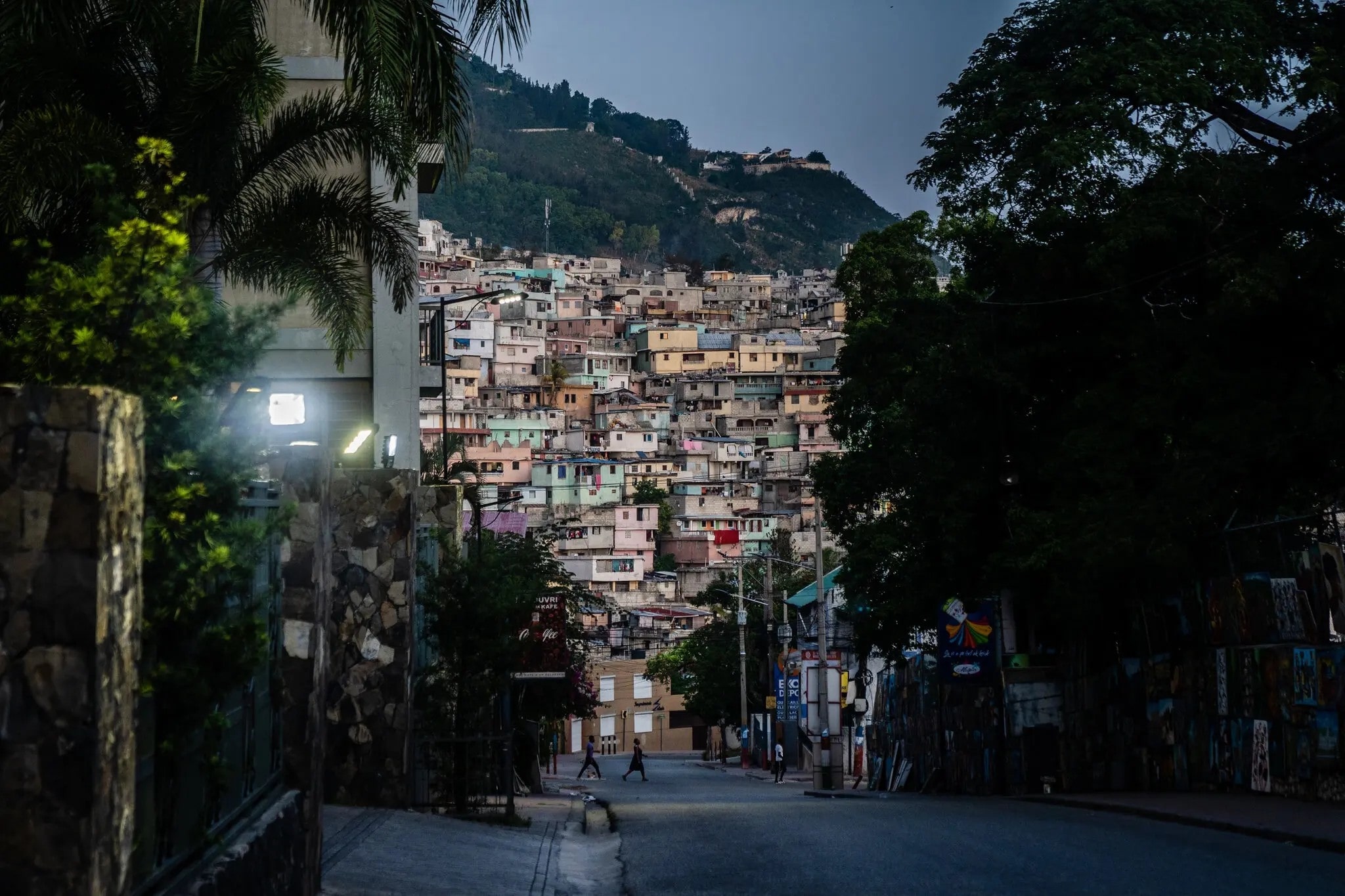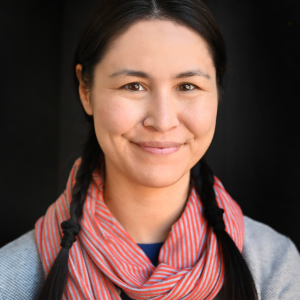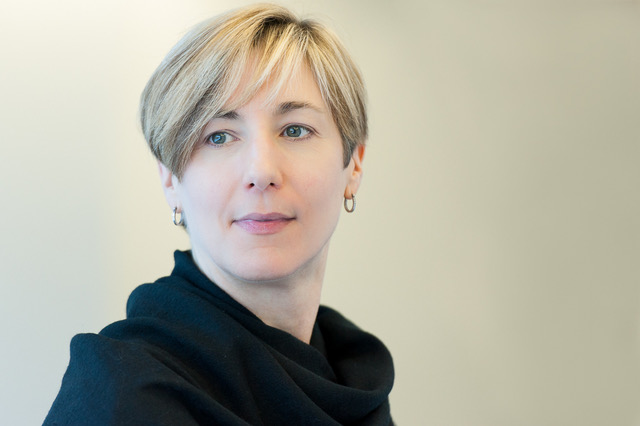News & Announcements
- Details
- Written by Kristin Oakley
Addressing sexual and gender-based harm on campus and walking the path toward healing with students.
Marti McCaleb is Associate Vice Chancellor for Equal Opportunity and Title IX Coordinator at the University of Denver, where she is responsible for the university's response to reports of discrimination, harassment, and gender-based violence. In her role, she develops and administers policies and procedures and supervises investigations into incidents of alleged misconduct. She is actively working to build sustainable, restorative-informed practices for community building, campus engagement, and response and reconciliation in the aftermath of gender-based harm.
- Details
- Written by Kristin Oakley
IIRP Instructors and Implementation Coaches Julia Getty and Nikki Chamblee joined members of ICAISA, the International Council Advancing Independent School Accreditation, to share practical methods for uniting school communities around challenging times. The discussion specifically explores the use of restorative practices to prepare classrooms for discussions before, during, and after the 2024 U.S. presidential election. This presentation was originally provided to associate members of ICAISA.
- Details
- Written by Kristin Oakley
In September 2024 we welcomed two new faculty members to the IIRP Graduate School. Highly accomplished in their respective fields, Dr. Doug Judge and Dr. Michael A. Washington will support the expansion of our curriculum, starting with our new Graduate Certificate in Change Implementation in Organizations and Social Systems. The commitment of these two scholar-practitioners to education and leadership offers our students invaluable perspectives on complex and multifaceted topics.
- Details
- Written by Kristin Oakley
The IIRP Graduate School’s Collaborative Center for Restorative Practices in Higher Education is pleased to announce the inaugural Restorative Practices in Higher Education Virtual Forum on December 5 – 6, 2024.
The forum aims to build connections and capacity for the integration of restorative practices into the field of higher education. This experience will provide an opportunity for dialogue, learning, sharing experiences, and discussion about restorative practices and restorative justice research and practice.
Look forward to engaging breakout sessions, discussions around best practices, highlights of current research, and meaningful networking opportunities! Learn more on the event website.
- Details
- Written by Kristin Oakley
At the International Institute for Restorative Practices Graduate School, we see our work as “The Science of Relationships and Community.” This definition centers our efforts in proactively building connections amongst individuals where sense of belonging is the primary outcome. This belonging, in turn, becomes a contributing factor in reducing the negative data points which caused a school to explore restorative practices. Rather than seeking a new approach to discipline which often is interpreted as the removal of consequences, I like to urge all I encounter to recall the noble reasons they became an educator and reclaim the power of relationships at work to intentionally build a culture of belonging and watch the data shift itself.
- Details
- Written by Kristin Oakley
From Creative Expression to Student Advocacy
Kelli Krieger is a high school English teacher at Union-Endicott High School in central New York state. She is a mentor, club advisor, and student advocate. She strives to combine art, literature, self-expression, and creativity with restorative practices in methods and principles to create a classroom culture rooted in mutual respect and kindness.
- Details
- Written by Kristin Oakley
Restorative justice has significantly evolved from its initial focus on repairing the harm caused by interpersonal crimes involving clearly identifiable victims and offenders. Traditionally, the "restorative idea" aimed to facilitate reconciliation and address immediate harm through face-to-face meetings. However, the field has grown into a broader social movement that addresses not only interpersonal conflicts but also structural and systemic issues. This shift reflects a deeper understanding of harm, recognizing that it often stems from broader social injustices and that many individuals who cause harm have themselves been victims, including of systemic oppression. Rather than confining its focus to individual interpersonal relations, restorative justice now includes more complex dynamics within collective, institutional, and organizational contexts, as well as interactions with nature and “more-than-human” animals, as evidenced by studies in environmental restorative justice. Contemporary restorative justice aims to challenge oppressive structures, promote social healing, and transform the societal conditions that give rise to conflict. This evolution underscores the importance of moving beyond the simple victim-offender dyad to embrace a more holistic and inclusive approach that addresses the complex realities of harm in our society.
- Details
- Written by Kristin Oakley
Natasha is utilizing her education to propel her desire to serve as a restorative practices resource to the community she cares for.
Natasha Akery is a current student at the IIRP Graduate School and a secondary language arts teacher and professional developer at Academic Magnet High School in North Charleston, South Carolina. She teaches literature and designs professional development programs with a restorative practices lens to encourage students and teachers to think about the world relationally and communally. She aims to serve as a resource to her entire school district for bringing relationship- and community-building into all school spaces.
- Details
- Written by Kristin Oakley
Bringing Collaboration and Conflict Management to Corporations
Michele Chubirka is a Cloud Security Advocate at Google and a current IIRP Graduate School student. She uses her skills as a restorative practitioner to promote a more collaborative, respectful relationship between cybersecurity experts and those they serve. Her unique approach to risk management integrates restorative practices into security programs. She presented about how she combines these fields at the 2023 Online IIRP World Conference.
- Details
- Written by Kristin Oakley
The Use of Restorative Approaches in Equity, Diversity, Inclusion, and Anti-Racism Work
The IIRP’s continuing education learners do tremendous work incorporating restorative practices in their workplaces and communities and are an integral part of our graduate school community. Their experiences are valuable and offer insight into the reality and rewards of applying concepts and methods presented to them through our continuing education offerings. Learners advance their interpersonal skills and approaches, improving their effectiveness as they engage with others, collaborate constructively, and build community.
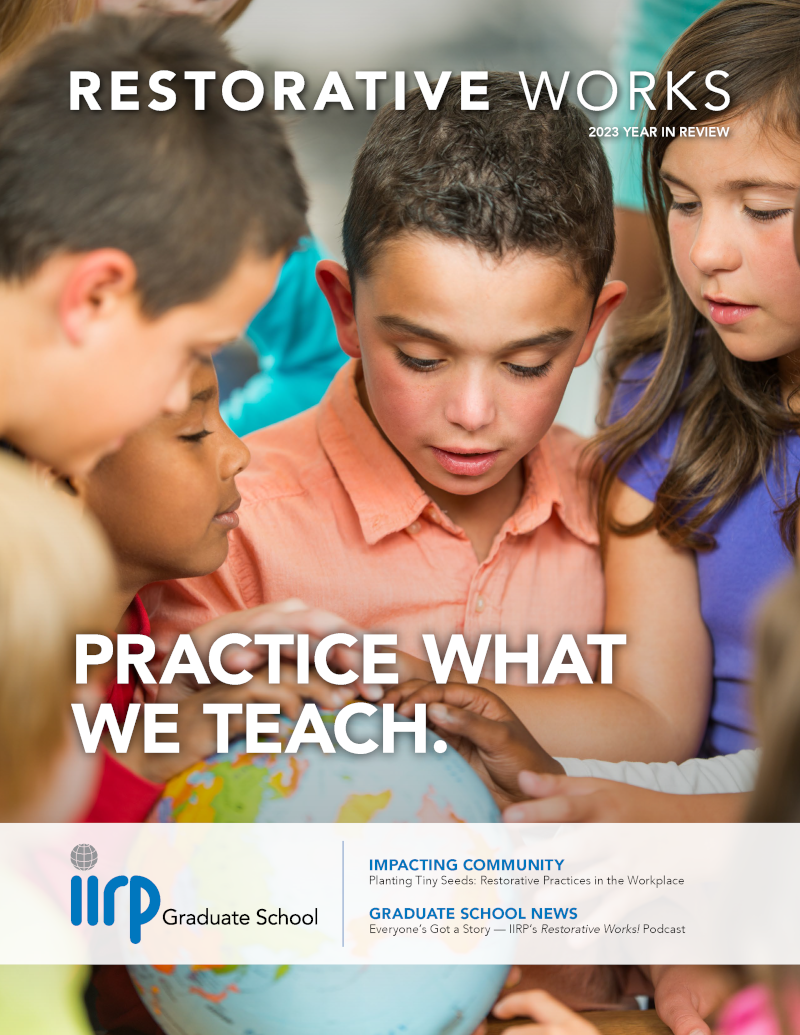
Restorative Works Year in Review 2023 (PDF)
All our donors are acknowledged annually in Restorative Works.
